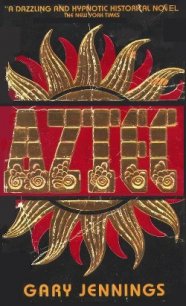Perfume. The story of a murderer - Suskind Patrick (читать книги онлайн бесплатно полностью без сокращений .txt) 📗
Thirty-eight
HE SPENT HIS time in the workshop. He explained to Druot that he was trying to invent a formula for a new cologne. In reality, however, he was experimenting with scents of a very different sort. Although he had used it very sparingly, the perfume that he had mixed in Montpellier was slowly running out. He created a new one. But this time he was not content simply to imitate basic human odor by hastily tossing together some ingredients; he made it a matter of pride to acquire a personal odor, or better yet, a number of personal odors.
First he made an odor for inconspicuousness, a mousy, workaday outfit of odors with the sour, cheesy smell of humankind still present, but only as if exuded into the outside world through a layer of linen and wool garments covering an old man’s dry skin. Bearing this smell, he could move easily among people. The perfume was robust enough to establish the olfactory existence of a human being, but at the same time so discreet that it bothered no one. Using it, Grenouille was not actually present, and yet his presence was justified in the most modest sort of way-a bastard state that was very handy both in the Arnulfi household and on his occasional outings in the town.
On certain occasions, to be sure, this modest scent proved inconvenient. When he had errands to run for Druot or wanted to buy his own civet or a few musk pods from a merchant, he might prove to be so perfectly inconspicuous that he was either ignored and no one waited on him, or was given the wrong item or forgotten while being waited on. For such occasions he had blended a somewhat more redolent, slightly sweaty perfume, one with a few olfactory edges and hooks, that lent him a coarser appearance and made people believe he was in hurry and on urgent business. He also had good success with a deceptive imitation of Druot’s aura seminalis, which he learned to produce by impregnating a piece of oily linen with a paste of fresh duck eggs and fermented wheat flour and used whenever he needed to arouse a certain amount of notice.
Another perfume in his arsenal was a scent for arousing sympathy that proved effective with middle-aged and elderly women. It smelled of watery milk and fresh, soft wood. The effect Grenouille created with it-even when he went out unshaved, scowling, and wrapped in a heavy coat-was of a poor, pale lad in a frayed jacket who simply had to be helped. Once they caught a whiff of him, the market women filled his pockets with nuts and dried pears because he seemed to them so hungry and helpless. And the butcher’s wife, an implacably callous old hag if there ever was one, let him pick out, for free, smelly old scraps of meat and bone, for his odor of innocence touched her mother’s heart. He then took these scraps, digested them directly in alcohol, and used them as the main component for an odor that he applied when he wanted to be avoided and left completely alone. It surrounded him with a slightly nauseating aura, like the rancid breath of an old slattern’s mouth when she awakens. It was so effective that even Druot, hardly a squeamish sort, would automatically turn aside and go in search of fresh air, without any clear knowledge, of course, of what had actually driven him away. And sprinkling a few drops of the repellent on the threshold of his cabin was enough to keep every intruder, human or animal, at a distance.
Protected by these various odors, which he changed like clothes as the situation demanded and which permitted him to move undisturbed in the world of men and to keep his true nature from them, Gre-nouille devoted himself to his real passion: the subtle pursuit of scent. And because he had a great goal right under his nose and over a year still left to him, he not only went about the task with burning zeal, but he also systematically planned how to sharpen his weapons, polish his techniques, and gradually perfect his methods. He began where he had left off at Baldini’s, with extracting the scent from inert objects: stone, metal, glass, wood, salt, water, air…
What before had failed so miserably using the crude process of distillation succeeded now, thanks to the strong absorptive powers of oil. Grenouille took a brass doorknob, whose cool, musty, brawny smell he liked, and wrapped it in beef tallow for a few days. And sure enough, when he peeled off the tallow and examined it, it smelled quite clearly like the doorknob, though very faintly. And even after a lavage in alcohol, the odor was still there, infinitely delicate, distant, overshadowed by the vapor of the spirits, and in this world probably perceptible only to Gre-nouille’s nose-but it was certainly there. And that meant, in principle at least, at his disposal. If he had ten thousand doorknobs and wrapped them in tallow for a thousand days, he could produce a tiny drop of brass-doorknob essence absolue strong enough for anyone to have the indisputable illusion of the original under his nose.
He likewise succeeded with the porous chalky dust from a stone he found in the olive grove before his cabin. He macerated it and extracted a dollop of stone pomade, whose infinitesimal odor gave him indescribable delight. He combined it with other odors taken from ail kinds of objects lying around his cabin, and painstakingly reproduced a miniature olfactory model of the olive grove behind the Franciscan cloister. Carrying it about with him bottled up in a tiny flacon, he could resurrect the grove whenever he felt like it.
These were virtuoso odors, executed as wonderful little trifles that of course no one but he could admire or would ever take note of. He was enchanted by their meaningless perfection; and at no time in his life, either before or after, were there moments of such truly innocent happiness as in those days when he playfully and eagerly set about creating fragrant landscapes, still lifes, and studies of individual objects. For he soon moved on to living subjects.
He hunted for winter flies, for maggots, rats, small cats, and drowned them in warm oil. At night he crept into stalls to drape cows, goats, and piglets for a few hours in cloths smeared with oil or to wrap them in greasy bandages. Or he sneaked into sheepfolds and stealthily sheared a lamb and then washed the redolent wool in rectified spirit. At first the results were not very satisfactory. For in contrast to the patient things, doorknobs and stones, animals yielded up their odor only under protest. The pigs scraped off the bandages by rubbing against the posts of their sties. The sheep bleated when he approached them by night with a knife. The cows obstinately shook the greasy cloths from their udders. Some of the beetles that he caught gave off foully stinking secretions while he was trying to work with them, and the rats, probably out of fear, would shit in the olfactorily sensitive pomades. Unlike flowers, the animals he tried to macerate would not yield up their scent without complaints or with only a mute sigh-they fought desperately against death, absolutely did not want to be stirred under, but kicked and struggled, and in their fear of death created large quantities of sweat whose acidity ruined the warm oil. You could not, of course, do sound work under such conditions. The objects would have to be quieted down, and so suddenly that they would have no time to become afraid or to resist. He would have to kill them.
He first tried it with a puppy. He enticed it away from its mother with a piece of meat, all the way from the slaughterhouse to the laboratory, and as the animal panted excitedly and lunged joyfully for the meat in Grenouille’s left hand, he gave one quick, hard blow to the back of its head with a piece of wood he held in his right. Death descended on the puppy so suddenly that the expression of happiness was still on its mouth and in its eyes long after Grenouille had bedded it down in the impregnating room on a grate between two greased plates, where it exuded its pure doggy scent, unadulterated by the sweat of fear. To be sure, one had to be careful! Carcasses, just as plucked blossoms, spoiled quickly. And so Grenouille stood guard over his victim, for about twelve hours, until he noticed that the first wisps of carrion scent-not really unpleasant, but adulterating nevertheless-rose up from the dog’s body. He stopped the enfleurage at once, got rid of the carcass, and put the impregnated oil in a pot, where he carefully rinsed it. He distilled the alcohol down to about a thimbleful and filled a tiny glass tube with these few remaining drops. The perfume smelled clearly of dog-moist, fresh, tallowy, and a bit pungent. It smelled amazingly like dog. And when Grenouille let the old bitch at the slaughterhouse sniff at it, she broke out in yelps of joy and whimpered and would not take her nose out of the glass tube. Grenouille closed it up tight and put it in his pocket and bore it with him for a long time as a souvenir of his day of triumph, when for the first time he had succeeded in robbing a living creature of its aromatic soul.




